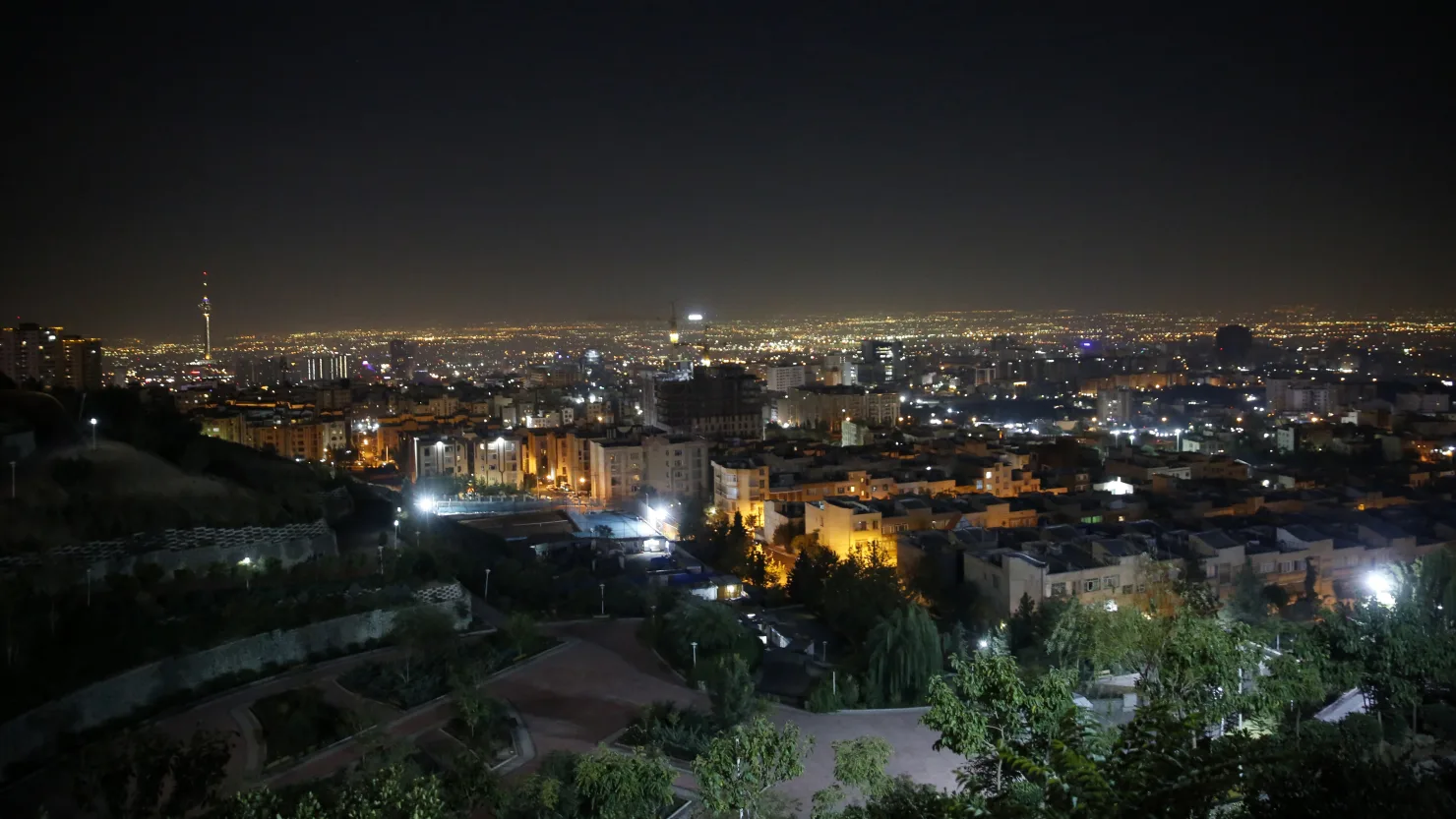Iran minimized the impact of Israel’s latest airstrike on its military targets, describing the damage as “limited,” as U.S. President Joe Biden urged de-escalation to prevent a broader Middle East conflict. Israeli jets executed three waves of strikes early Saturday, targeting missile facilities and other sites in Tehran and western Iran in retaliation for Iran’s recent ballistic missile attack on Israel.
Iran condemned the air raid, stating it “recognizes its responsibilities towards regional peace and security,” in a move seen as more restrained than previous responses. Iran’s military reported that Israel used “light warheads” aimed at radar systems near Tehran and along Iran’s western border, claiming that Israeli planes were prevented from entering Iranian airspace.
Former U.N. nuclear weapons inspector David Albright reported that satellite imagery suggests one strike may have hit the Parchin military complex near Tehran, causing minor damage to structures used for missile engine production.
Tensions between the two countries have risen significantly since the Oct. 7 Hamas attack on Israel, with fears of regional spillover involving key players like the United States. In Lebanon, Israel’s ongoing offensive against Hezbollah has further escalated hostilities, prompting concerns of a wider conflict.
President Biden, joined by other leaders, called for an end to the tit-for-tat strikes. He emphasized that Saturday’s strikes appeared to be limited to military targets, a move that suggests Israel is attempting to avoid further escalation. Vice President Kamala Harris, echoing Biden’s sentiment, underscored that the U.S. strongly advocates for de-escalation.
Prime Minister Benjamin Netanyahu asserted that Israel selected the targets independently, acting solely in its national interest, while Washington’s input remained advisory. Iran’s leadership held multiple high-level meetings to discuss potential responses, with officials noting that Revolutionary Guards bases around Tehran were also struck but sustained minimal damage.
Videos from Tehran’s Mehrabad Airport circulated on Iranian media, indicating little disruption to civilian life. Israeli forces, indicating a belief that Iran may hold off on immediate retaliation, did not announce any new public safety measures.
Diplomatic Signals and Regional Reactions
Middle East analysts, including Beni Sabti of Israel’s Institute for National Security Studies, interpreted Israel’s strikes as a signal to Iran to prevent further escalation. Israeli media showed footage of air defenses firing at incoming projectiles over Tehran.
The U.S. and other Western allies, while informed of Israel’s plans, did not partake in the operation. Officials clarified that the strikes avoided Iran’s nuclear facilities and key energy assets, reflecting Biden’s caution to avoid targeting sensitive Iranian infrastructure.
In the wake of the raid, countries like Jordan and Saudi Arabia, whose airspace lies between Israel and Iran, expressed apprehension. Jordanian officials stated that no military planes entered their airspace, while Saudi Arabia denounced the attack as a violation of Iranian sovereignty.
Lebanon and Syria Conflicts Intensify
Alongside the tensions with Iran, Israel continues to face escalating conflict with Hezbollah in Lebanon, leading Israeli forces to strike Hezbollah-linked sites in Beirut. Syrian media also reported airstrikes on military installations in southern Syria, which Israel has not confirmed.
Efforts to defuse tensions in Gaza, including discussions on potential ceasefires and prisoner exchanges, are expected to resume in Doha. These negotiations aim to mitigate the risk of a wider regional conflict amidst the heightened hostilities.





